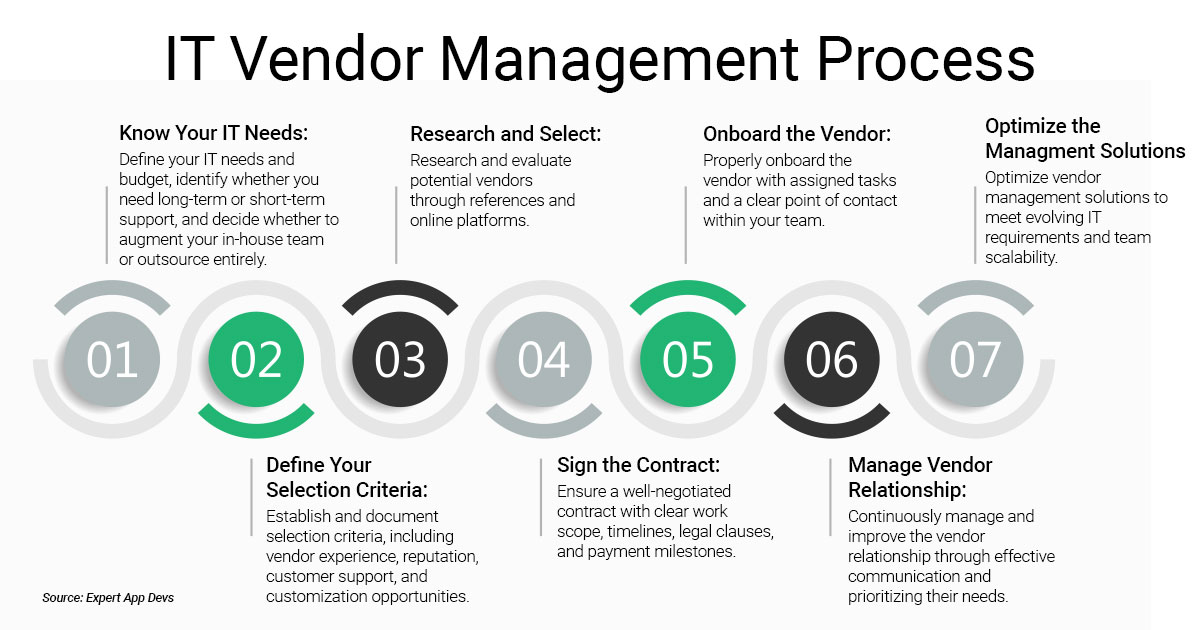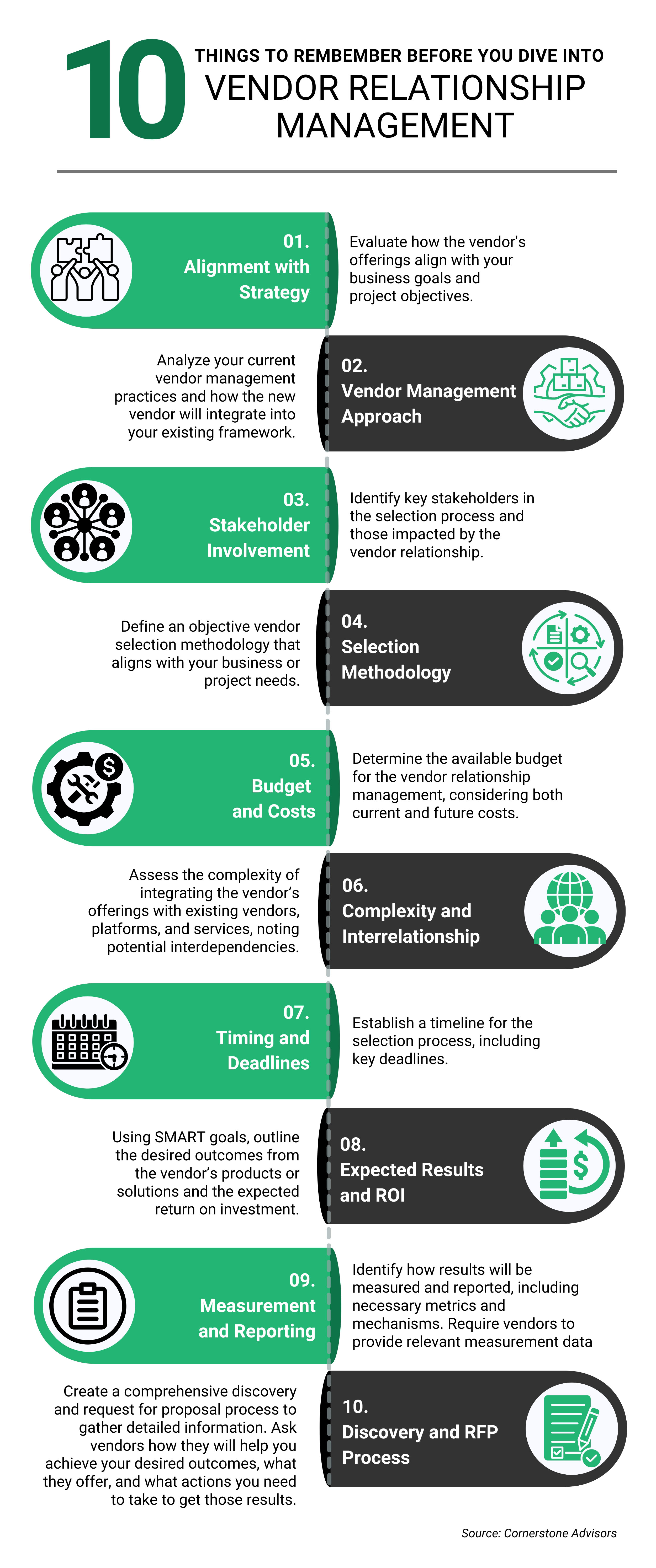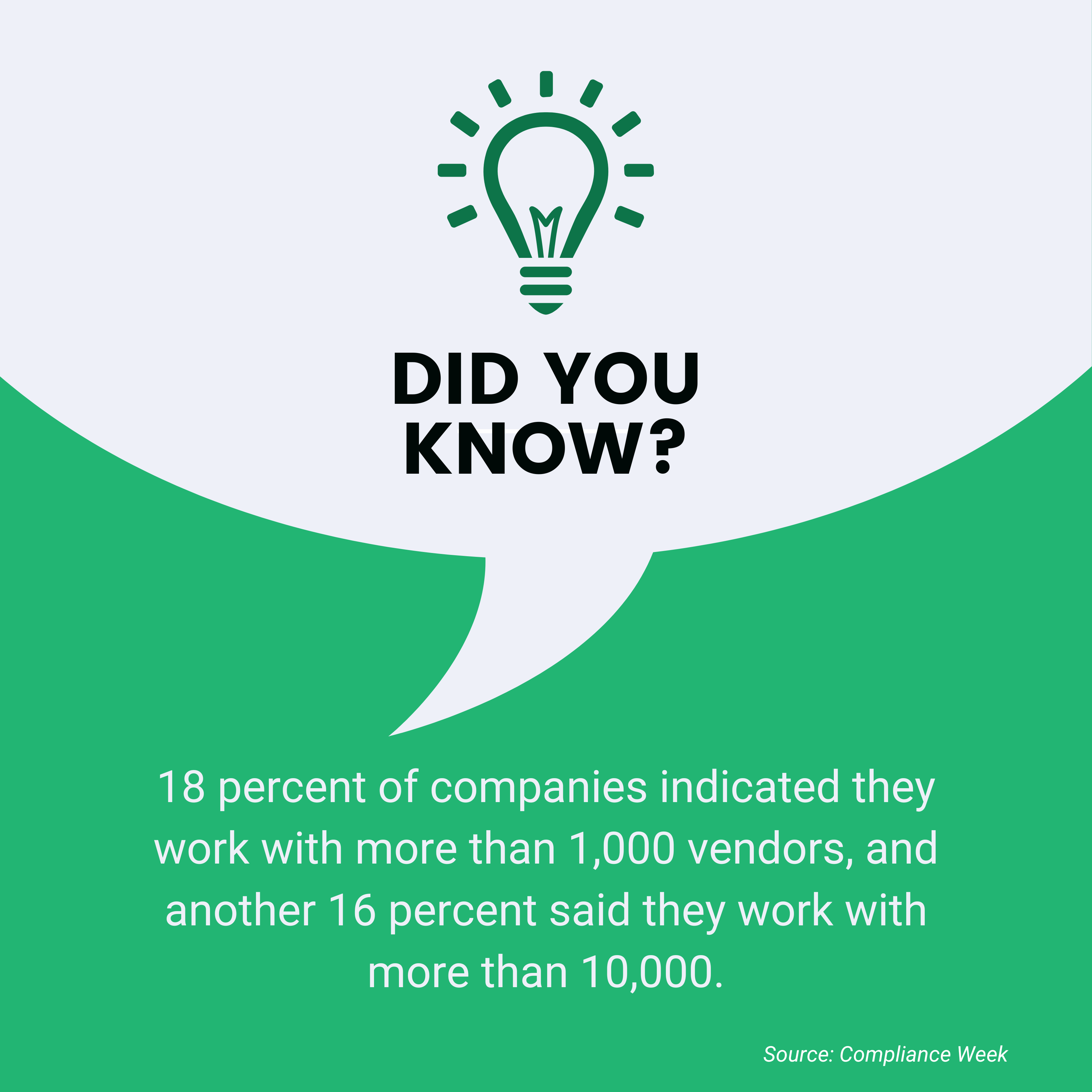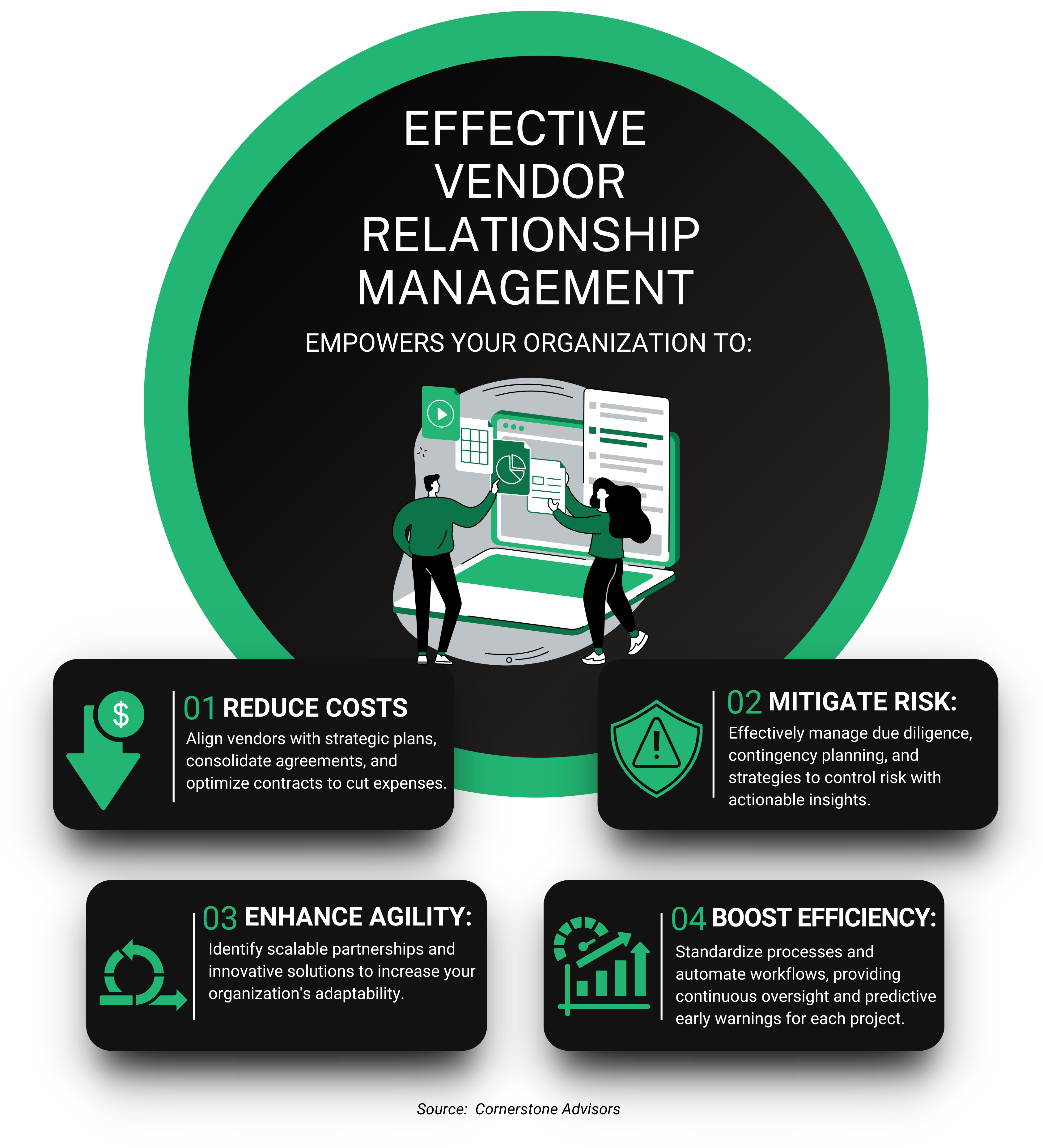
Do you manage all your software production and operations in-house, regardless of your company's size? Likely not. The right software, solutions, and tools can determine the success or failure of your project or business initiatives. For example, as a business leader in IT projects, you must often collaborate with consultants, freelancers, and other specialized service providers to meet client demands. Having dependable vendors is crucial. This is where vendor relationship management becomes essential.
But how do you keep track of everything when dealing with multiple vendors and large projects? Managing contracts, terms, payments, and communication can become incredibly complex. Effective vendor relationship management offers a practical framework for selecting suitable suppliers, allowing your team to focus on what they do best.
Today, artificial intelligence-driven predictive project management solution providers exemplify the importance of reliable vendor partnerships. These tools enable businesses to maintain project health and performance through automated oversight and governance, showcasing how the right vendor can significantly enhance overall project and business efficiency.
So, what exactly is vendor relationship management, and why is it crucial for your organization? In this article, we will explore its concept and significance. You will learn how to craft a vendor management plan, choose the right system, and implement best practices for efficient vendor management. Ready to enhance your vendor relationship management strategies and streamline your operations? Let's dive in.
What is Vendor Relationship Management?
Vendor relationship management (VRM) involves applying strategies and practices to foster a strong working relationship between an organization and its vendors. This approach is similar to managing any professional relationship, focusing on collaboration and mutual benefit.
While vendor relationship management seems like a routine business operation, nurturing these connections can yield significant benefits. Organizations prioritizing vendor relationships often see improved cooperation, better service, and enhanced project outcomes. You, the business leaders, can elevate your operational efficiency and reputation by valuing and caring for vendor relationships.
Why Is Vendor Relationship Management Crucial?
Have you ever considered how strong vendor relationships can impact the success of your projects? In today's fast-paced business environment, every initiative can be viewed as a project, and the success of these projects is often dependent on effective vendor relationship management. Whether launching a new product, upgrading your IT infrastructure, or implementing a cutting-edge software solution, managing vendor relationships is crucial. Here are the critical areas impacted by vendor relationship management:

Resource Allocation: To ensure project success, your company must optimize employee efforts and enhance production efficiency. Partnering with the right vendors is crucial, as they supply the vital tools and solutions for seamless project management. In today’s dynamic business environment, vendors now offer predictive analytics-enabled project management solutions. These innovative tools allow you to anticipate and prevent project setbacks before they occur, safeguarding the valuable time and money invested in your resources.
Quality Assurance & Control: Do you realize how much the quality of your vendor-provided solutions affects your final project delivery? The tools or products used in IT projects directly impact project quality. Proactively spotting issues, addressing unmet KPIs, and quickly identifying systemic problems are critical for maintaining overall business and project standards.
Cost Management: Your business value depends on the projects’ successes, so having the right vendors and tools is essential. Effective vendor relationship management helps companies save costs and directly impacts profitability. How? Studies reveal that vendors can save a company between 8% and 12% on direct spending. Imagine AI-powered solutions that integrate data with qualitative project team feedback, presenting a comprehensive set of dashboards that showcase real-time status and predict potential issues before they arise. The right vendor can provide this powerful capability, ensuring your projects stay on track and your business thrives.
Client Satisfaction: Maintaining high levels of client satisfaction is crucial, and the services provided by your vendors play a significant role in the success of the final deliverable. Modern-day solutions like predictive project management capabilities help you gain real-time insights into your projects or business initiatives, ensuring they stay on track and consistently meet client expectations. This further underscores the importance of robust vendor relationship management strategies.
Are you ready to optimize vendor interactions and elevate your business management strategy?
Vendor Relationship Management: It’s Time to Get Strategic…
 Whether you are building vendor relationship management from scratch or refining your current approach, various strategies can help nurture these crucial relationships. Your management and vendor interaction significantly impact your bottom line. Have you considered how strategic alignment in vendor relationship management can drive innovation and cost optimization? Crafting and managing an effective vendor strategy has never been more critical. Vendor relationship management cuts costs and ensures your business receives top-notch service when done right. Here are some strategies to focus on:
Whether you are building vendor relationship management from scratch or refining your current approach, various strategies can help nurture these crucial relationships. Your management and vendor interaction significantly impact your bottom line. Have you considered how strategic alignment in vendor relationship management can drive innovation and cost optimization? Crafting and managing an effective vendor strategy has never been more critical. Vendor relationship management cuts costs and ensures your business receives top-notch service when done right. Here are some strategies to focus on:
Selecting Vendors
How do you start with a suitable vendor? Effective vendor relationship management begins with proper selection. During the procurement process, ask questions aligned with your organization’s goals. Can a vendor meet compliance requirements, provide products for a specific or ongoing period, and maintain regular communication? These considerations set the stage for positive supplier relationship management. Don’t forget to check that strategic vendors align with your company’s ethics and work style, paving the way for a productive, long-term relationship.
Set Clear Expectations
It's vital to set clear expectations for your vendors from the beginning. This prevents misunderstandings and miscommunications. For example, if your organization requires vendors to provide automated project oversight and governance, ensure these requirements are communicated. Clarifying and understanding each other’s expectations, business goals, and systems during onboarding is crucial for mutual satisfaction.
Frequent Communication
You must communicate effectively with your organization and vendors. Assign at least one dedicated point of contact for vendors to communicate with, keeping your company informed and maintaining a positive working relationship. Be supportive and understanding of your vendors and their services. Recognize that they also have goals, deadlines, and challenges. When appropriate, offer workflow solutions to help them overcome these challenges. Mutual support in vendor relations benefits both the buyer and the vendor.
Tracking KPIs and Metrics
Successful organizations use detailed systems to evaluate their vendors’ performances. Throughout your relationship with a vendor, provide positive feedback and areas for improvement using various metrics, such as scorecards and performance evaluations. Discuss key performance indicators (KPIs) and metrics to track progress toward your goals. Taking things further, request vendors to complete a reverse scorecard, providing your organization with constructive feedback and highlighting strengths and areas for growth. This approach ensures a balanced evaluation from both sides.
Focus on a Win-Win Partnership
What makes a vendor relationship sustainable? Remember, vendors are running businesses and need to make a profit. Instead of constantly negotiating for the lowest prices, consider a best-value procurement approach or a win-win partnership. How can you show your vendor that you value their work? By negotiating fair prices that benefit both parties, you communicate appreciation for their efforts. In return, vendors are more likely to prioritize your needs and deliver high-quality products or solutions. Focusing on win-win partnerships leads to long-term benefits for your organization and vendors.
Transforming vendor management into a strategic advantage is a savvy move that can significantly drive the growth of your IT company.
You are Only as Good as Your Vendors
 While dramatic cost savings and reduced risk are compelling reasons to implement a next-level approach to vendor management, there is another equally compelling reason why vendor management is crucial to an institution’s success. Vendor performance is inextricably tied to your business’s performance. Imagine having the power to predict and prevent project setbacks, ensure quality, optimize costs, and exceed client expectations, all through strategic vendor partnerships. By selecting the right vendors, setting clear expectations, fostering open communication, and maintaining a win-win mindset, you transform vendor interactions from a routine task into a powerful catalyst for growth. But how?
While dramatic cost savings and reduced risk are compelling reasons to implement a next-level approach to vendor management, there is another equally compelling reason why vendor management is crucial to an institution’s success. Vendor performance is inextricably tied to your business’s performance. Imagine having the power to predict and prevent project setbacks, ensure quality, optimize costs, and exceed client expectations, all through strategic vendor partnerships. By selecting the right vendors, setting clear expectations, fostering open communication, and maintaining a win-win mindset, you transform vendor interactions from a routine task into a powerful catalyst for growth. But how?
Effective vendor relationship management is about finding the right vendors and leveraging their strengths to enhance your project's success. TrueProject exemplifies how a reliable vendor can significantly boost your business value. TrueProject, a KPI-based predictive project management SaaS solution that improves project health and performance, with its advanced warning systems, predictive intelligence, and AI-driven insights, helps identify potential project issues before they become critical, allowing immediate corrective actions. By delivering automated project oversight and governance, the solution ensures that your projects stay on track and within budget, ultimately leading to higher client satisfaction and business efficiency. Transform your vendor management strategy with TrueProject and experience the benefits of a proactive, data-driven approach to maintaining project health and performance.
It's time to turn vendor relationship management into your path to unparalleled success.
 About the Author:
About the Author:
Nivedita Gopalakrishna is a content marketing specialist within the TrueProject Marketing team with extensive experience in blog writing and website content creation across diverse industries. Nivedita’s proficiency in crafting engaging blog posts and informative website content is a testament to her years of experience. Beyond her prowess in written communication, Nivedita has a knack for creating visually appealing static graphics that have played a pivotal role in expanding TrueProject's marketing efforts. She has helped convey the brand's essence through thoughtful design choices and captivate audiences effectively. Outside the professional sphere, Nivedita is a trained classical singer and a fitness enthusiast, embodying creativity and wellness in and out of the office.
Endnotes:
- Patel, Vaibhav. “How to Ensure Successful IT Vendor Management? [Process and Best Practices].” Expert App Devs. (n.d.). https://www.expertappdevs.com/blog/it-vendor-management
- Udoagwu, Kelechi. “The Complete Guide to Vendor Management.” Wrike. March 04, 2024. https://www.wrike.com/blog/vendor-management-complete-guide/
- Sadoian, Leah. “A Guide to Vendor Relationship Management.” UpGuard. April 26, 2024. https://www.upguard.com/blog/vendor-relationship-management#toc-1
- “Vendor management and its role in project management.” Monday.com. October 27, 2024. https://monday.com/blog/project-management/vendor-management/
- Keslassy, Michael. “17 Disturbing statistics justifying the vendor management imperative.” Vendict. March 03, 2020. https://vendict.com/blog/17-disturbing-statistics-justifying-the-vendor-management-imperative
- “Vendor Management: How Banks and Credit Unions Can Gain a Competitive Edge.” Cornerstone Advisors. (n.d.). Vendor Management Whitepaper 2024 v2.pdf (crnrstone.com)





